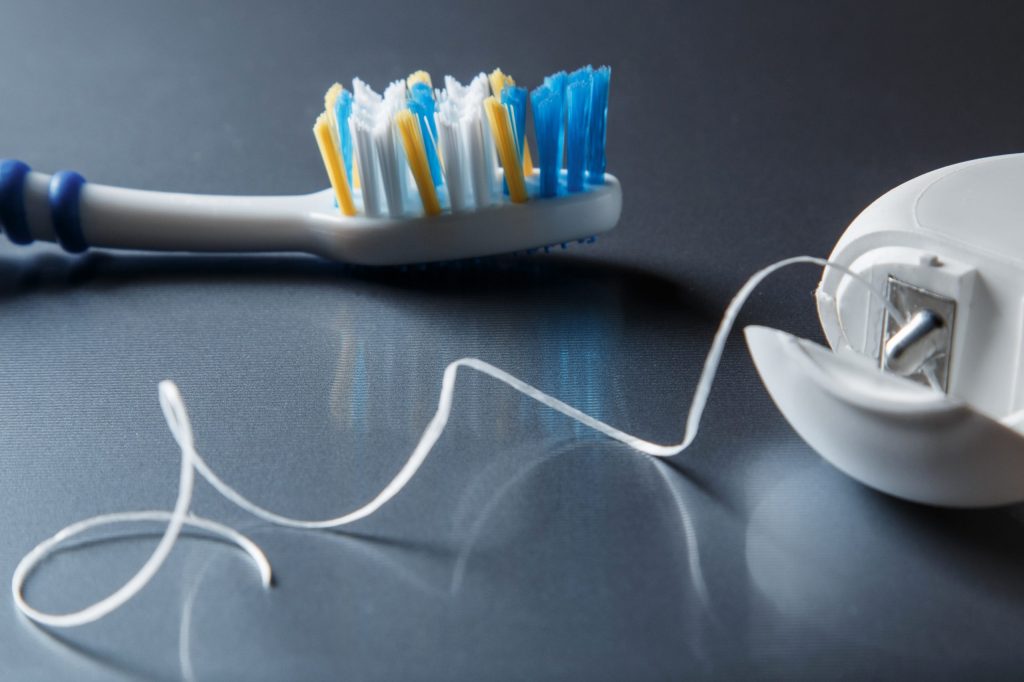Resource Library
Start Reading

When you’re feeling under the weather, taking care of your teeth may be the last thing on your mind. In fact, there may even be times when your teeth hurt when you’re sick, and brushing is the last thing you feel like doing. But did you know that if you neglect brushing your teeth when sick may cause additional health issues? If you find yourself sick with a cold or the flu, here are a few tips for brushing and caring for your teeth that will help keep them healthy and strong as you get back on the road to recovery.
If you’re suffering from a cold or the flu, you may experience pain in your teeth or the surrounding area.
Why does this happen?
 This pain could be a result of a sinus infection or sinusitis. Your sinuses are air-filled spaces within the skull that are connected to the nasal cavity. Sinusitis is a condition where the tissues in the sinus spaces become inflamed due to infection. The sinuses are near the roots of your teeth, and when the sinus tissues become inflamed, it can lead to pain.
This pain could be a result of a sinus infection or sinusitis. Your sinuses are air-filled spaces within the skull that are connected to the nasal cavity. Sinusitis is a condition where the tissues in the sinus spaces become inflamed due to infection. The sinuses are near the roots of your teeth, and when the sinus tissues become inflamed, it can lead to pain.
Other symptoms may include:
If you’re experiencing pain in your teeth while suffering from a cold or the flu, over-the-counter medication may help. However, if the pain and other cold or flu symptoms haven’t subsided after 10 days, visit your doctor. Antibiotics may be needed to treat the infection.
Did you know?
Conversely, if you have an infected tooth, it can also lead to a sinus infection due to the proximity of the sinuses and teeth roots. Having a solid oral hygiene routine, whether sick or well, goes a long way toward keeping us healthy.
Whether or not you’re experiencing painful teeth when you’re sick, it is important to keep up with your oral hygiene habits. Neglecting them can lead to other health issues.
 How does it lead to other health issues?
How does it lead to other health issues?
When you’re sick, you tend to have a dry mouth due to decreased saliva production. This dryness can contribute to cavities and tooth decay because bacteria cannot be washed away by saliva. Brushing will help, and it may also help you feel better. Additionally, if you have a sore throat or sinus infection, brushing your teeth can help remove the bacteria causing the infection.
1. Continue to brush and floss regularly.
When brushing, use a toothbrush with soft bristles and brush gently in circular motions for two minutes. Be sure to brush all surfaces of your teeth: the front, back, and tops.
 2. Use a fluoride-containing toothpaste.
2. Use a fluoride-containing toothpaste.
Fluoride helps protect against cavities and is especially beneficial when you’re sick. It helps repair weakened enamel caused by dry mouth and acid buildup from bacteria in your mouth.
3. Rinse regularly with an antibacterial mouthwash that contains fluoride and gargle with salt water.
Rinsing with a mouthwash can help remove bacteria and food particles from your mouth, and gargling with salt water also reduces the bacteria in your mouth while helping ease any throat pain.
4. Drink water throughout the day.
When you’re sick, it can be easy to forget to stay hydrated. That’s why a cold, the flu, and dry mouth go hand in hand. Drinking water helps to keep your mouth moist and can help reduce tooth sensitivity. It’s also important to stay hydrated when you’re sick, as it can help alleviate throat pain and congestion.
5. Rinse your mouth out after vomiting.
Vomiting can increase the risk of tooth decay and erosion because it exposes your teeth to stomach acid. Rinse your mouth out with water or an antibacterial mouthwash after vomiting to help reduce this risk.
6. Avoid acidic and sugary foods and drinks, and use sugar-free cough drops.
Acidic foods and drinks can increase the acidity in your mouth, which can lead to cavities and other problems, while sugary substances can contribute to tooth decay.
7. Replace your toothbrush.
You should get a new toothbrush afterward to get rid of any lingering bacteria. Also, store your toothbrush apart from others in your home to keep them from getting sick.
Following the right oral hygiene procedures is always important—especially when you have a cold or the flu. Penn Dental Family Practice can help. To schedule an appointment, just complete this form.
See what sets us apart from other practices in the Philadelphia area with our complimentary chart, “The Evidence You Need To Pick The Right Dentist.” We’ve outlined how we accommodate each patient’s needs and strive for excellence in education and care.